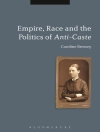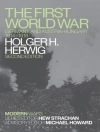Patrick Collinson was one of Britain’s foremost early modern historians. This volume collects together a number of his most interesting and least easily accessible essays with a thoughtful introduction written specifically for this book.
This England is a celebration of ‘Englishness’ in the sixteenth century. It explores the growing conviction of ‘Englishness’ through the rapidly developing English language; the reinforcement of cultural nationalism as a result of the Protestant Reformation; the national and international situation of England at a time of acute national catastrophe; and of Queen Elizabeth I, the last of her line, remaining unmarried, refusing to even discuss the succession to her throne.
Introducing students of the period to an aspect of history largely neglected in the current vogue for histories of the Tudors, Collinson investigates the rising role of English, of England’s God-centredness, before focusing on the role of Elizabethans as citizens rather than mere subjects. It responds to a demand for a history which is no less social than political, and investigates what it meant to be a citizen of early modern England, living through the 1570s and 1580s.
Jadual kandungan
Introduction. This England: Race, nation, patriotism
1. The politics of religion and the religion of politics in Elizabethan England
2. The Elizabethan exclusion crisis and the Elizabethan polity
3. Servants and citizens: Robert Beale and other Elizabethans
4. Pulling the strings: religion and politics in the progress of 1578
5. Elizabeth I and the verdicts of history
6. Biblical rhetoric: the English nation and national sentiment in the prophetic mode
7. John Foxe and national consciousness
8. Truth, lies, and fiction in sixteenth-century protestant historiography
9. One of Us? William Camden and the making of history
10. William Camden and the anti-myth of Elizabeth: Setting the mould?
11. John Stow and nostalgic antiquarianism
Index
Mengenai Pengarang
Patrick Collinson is Regius Professor of Modern History at the University of Cambridge and a Fellow of Trinity College












